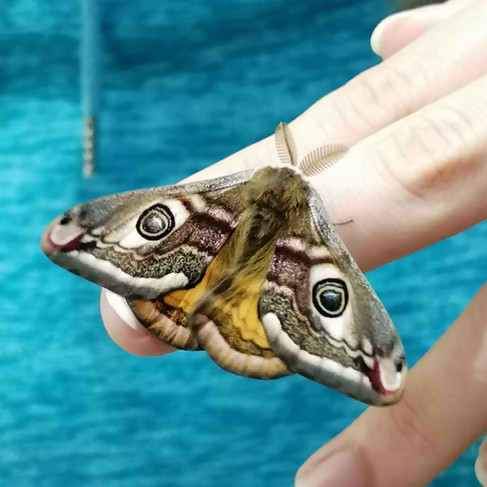University Moth Challenge
- opticron
- May 17, 2021
- 2 min read
Zeny volunteers for Butterfly Conservation and is running their annual University Moth Challenge competition. After missing out last year due to Covid-19 she’s keener than ever to grow our community of student moth-ers!

Did you know that the deaths head hawkmoth (Acherontia atropos) can squeak or that the caterpillar of the puss moth (Cerura vinula) can even spit formic acid?! These are just some of the many reasons why moths have captured my interest over the past eight years and continue to do so to this day! I have always been fascinated by invertebrates, especially Lepidoptera, with the process of metamorphosis greatly intriguing me. I find it incredible that one organism is able to take on several greatly different forms throughout its life cycle and that we still don’t truly know what is happening during the pupal stage.
My appreciation and enthusiasm for moths has grown enormously, particularly whilst studying at college and university, where I decided to undertake my dissertation on the vapourer moth (Orgyia antiqua). This involved me rearing over 1000 individuals in 2018, all in my bedroom!
The university moth challenge is a fantastic way of getting people interested and involved with moths, which are unfortunately an overlooked group and underappreciated. This is mainly because the majority of UK moths are nocturnal and due to the common misconception, that all moths are brown and boring. The competition appeals to me as it facilitates a way in which people can engage with others, in order to learn more about moths, including what challenges they face, as well as allowing them to appreciate the great diversity of species that can be found in their local area.
This year’s entrants can expect to learn lots about moths and hopefully, they will get to see first-hand the wide variety of species we have here in the UK. The competition will also enable the entrants to gain and further enhance their biological surveying and recording skills, as well as helping to establish links with moth experts. All of these skills and contacts could prove invaluable for those seeking careers within the environmental industries.
Teams of students (teaching staff also allowed!) compete to see how many moths (species and abundance) they can find across the spring and summer competition months. They may trap on or off-campus, and this year we have some new bonus categories too. In 2019, we had twelve teams entered across the UK, including ‘Expect Mothing’ from Cumbria and the ‘Elephant York-Moths’ from York (obvs). It was the Lancaster Leps that came out on top though, chalking up an impressive 469 species.
New for 2021, I’m looking forward to starting up a Uni Moth Challenge Facebook group, so students can connect, share results and help one another with identification.
Small Emperor Moth
To find out more, please visit University Moth Challenge (butterfly-conservation.org)








Comments